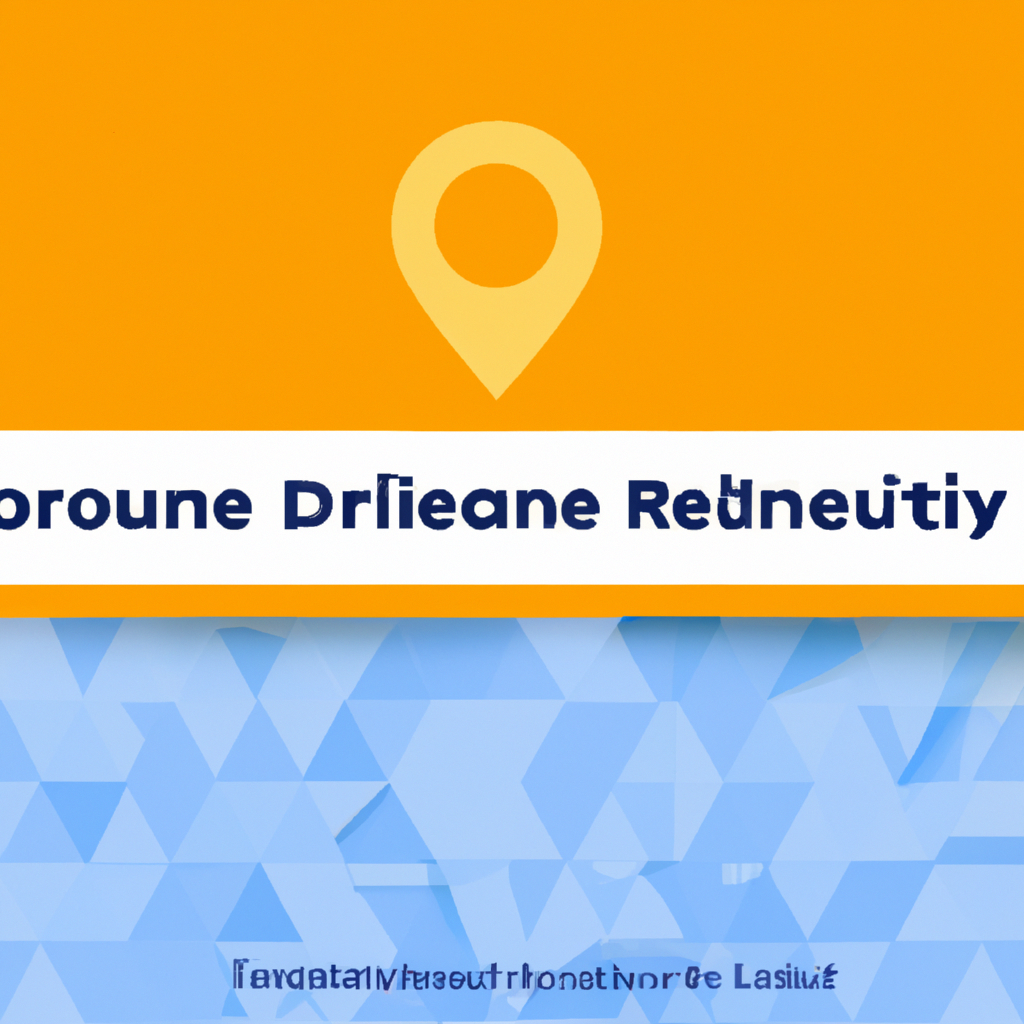Ready to take your learning to the next level? Look no further than the world of free online resources! In today’s fast-paced digital era, the opportunities for continuous learning are endless. Whether you want to master a new language, explore the depths of history, or enhance your professional skills, there are a plethora of valuable tools and platforms available at your fingertips. From interactive video tutorials to comprehensive e-courses, these online resources provide a wealth of knowledge to satisfy your thirst for learning, all completely free of charge. So why wait? Unlock the door to endless possibilities and embark on a journey of lifelong learning with these incredible, accessible resources!
1. What are free online resources?
1.1 Definition
Free online resources refer to educational materials, courses, libraries, and platforms that are accessible over the internet at no cost. These resources provide individuals with opportunities to expand their knowledge, develop new skills, and pursue personal and professional growth. They can be accessed anytime and anywhere, making them ideal for individuals who have a desire to learn but may have limited access to traditional educational institutions.
1.2 Types of free online resources
There are various types of free online resources that cater to different learning needs and preferences. Some common types include:
-
Online courses: These are structured learning programs that cover a wide range of subjects and are often provided by universities, institutions, or experts in the field.
-
E-books and online libraries: These platforms provide access to a vast collection of books, articles, and other written materials on various topics. They can be accessed digitally, allowing users to read and learn at their own pace.
-
Open educational resources (OER): OER refers to openly licensed educational materials such as textbooks, lectures, and multimedia resources that can be freely used, shared, and modified by educators and learners.
-
Massive Open Online Courses (MOOCs): MOOCs are online courses that are designed to be accessible to a large number of participants. They often include interactive elements such as videos, quizzes, and discussion forums.
-
Online video platforms: Platforms like YouTube and TED-Ed offer a wide range of educational videos on various topics. These videos can be a valuable source of information and can cater to different learning styles.
-
Online forums and communities: Websites like Reddit, Quora, and Stack Exchange provide platforms for individuals to ask questions, share knowledge, and engage in discussions with experts and like-minded individuals.
-
Virtual learning environments: These are online platforms that facilitate the delivery of educational content, interactive activities, and assessments. They often include features such as discussion boards, chat rooms, and file sharing capabilities.
-
Podcasts and audiobooks: Podcasts and audiobook platforms offer audio-based educational content that can be listened to while commuting, exercising, or engaging in other activities.
2. Benefits of continuous learning
2.1 Personal growth and development
Continuous learning through free online resources can have a profound impact on personal growth and development. By engaging in lifelong learning, you can expand your horizons, gain new perspectives, and develop a deeper understanding of the world around you. This not only enhances your intellectual capabilities but also fosters personal growth and self-confidence. Learning new skills or exploring new subjects can also help you discover new passions and interests, enriching your personal life.
2.2 Career advancement
In today’s rapidly evolving job market, continuous learning has become essential for career advancement. By taking advantage of free online resources, you can acquire new knowledge and skills that are in demand in your industry. This can make you a more valuable asset to current or potential employers, increasing your chances of career growth and progression. Additionally, continuous learning demonstrates to employers that you are proactive, motivated, and dedicated to self-improvement, which can be appealing qualities in a competitive job market.
2.3 Increased knowledge and expertise
Continuous learning not only broadens your knowledge but also deepens your expertise in specific areas. By consistently engaging with free online resources, you can stay updated with the latest developments in your field of interest. This can help you become a subject matter expert, positioning you as a go-to resource for others seeking information or guidance. Increased knowledge and expertise can open doors to new opportunities, such as writing articles, speaking at conferences, or even starting your own consulting business.

3. Top websites for free online courses
3.1 Coursera
Coursera is a well-known platform that offers a wide range of free online courses from leading universities and institutions around the world. With courses covering subjects such as computer science, business, and humanities, Coursera provides high-quality educational content that can be accessed by anyone with an internet connection. While some of the courses on Coursera require a fee for a verified certificate, many courses can be audited for free, allowing you to learn at your own pace without any financial burden.
3.2 Khan Academy
Khan Academy is a non-profit organization that aims to provide free world-class education to anyone, anywhere. The platform offers a vast collection of video lessons, practice exercises, and quizzes in subjects such as math, science, computing, and humanities. Khan Academy is especially renowned for its math tutorials, making it a valuable resource for students of all ages. Whether you need help with algebra or want to learn advanced calculus, Khan Academy has you covered.
3.3 Udemy
Udemy is a popular online learning marketplace that offers both free and paid courses on a wide range of topics. While many courses on Udemy require payment, the platform also hosts a significant number of free courses. These free courses cover diverse subjects, from programming and graphic design to personal development and foreign languages. Whether you want to acquire a new skill or explore a hobby, Udemy provides a wealth of educational resources to fuel your learning journey.
3.4 MIT OpenCourseWare
MIT OpenCourseWare is an initiative by the Massachusetts Institute of Technology to share educational materials from its courses with the world. Through the platform, you can access a vast collection of course materials, including lecture notes, assignments, and exams, from various MIT courses. While not all courses offer online lectures, the provided materials can still provide valuable insights and learning opportunities. MIT OpenCourseWare covers a wide range of subjects, making it a valuable resource for both students and lifelong learners.
3.5 Harvard Online Learning
Harvard Online Learning offers a variety of free online courses and academic programs from Harvard University. These courses cover a range of disciplines, from computer science and business to law and humanities. With Harvard’s reputation for excellence, these courses provide a unique opportunity to learn from renowned faculty and experts in the respective fields. Through Harvard Online Learning, you can gain valuable knowledge and skills that can enhance your personal and professional growth.
4. Free online libraries and e-books
4.1 Project Gutenberg
Project Gutenberg is a digital library that offers over 60,000 free e-books, which can be downloaded or read online. The collection includes classics, literature, and non-fiction books in various languages. Project Gutenberg is a treasure trove for book lovers and provides access to timeless literary works that have shaped the history of literature.
4.2 Open Library
Open Library is an online project that aims to create a web page for every book ever published. The platform offers a vast collection of e-books, including both contemporary and out-of-print titles. Open Library allows users to borrow e-books for free, with a wide array of genres and subjects available to cater to different reading preferences.
4.3 Google Books
Google Books is a comprehensive online database of books from publishers and libraries around the world. While not all books are available for free, Google Books offers a substantial collection of free e-books that can be read online or downloaded in PDF format. Users can search for books by title, author, or topic, making it a valuable resource for research or leisure reading.
4.4 ManyBooks
ManyBooks is a digital library that offers over 50,000 free e-books in multiple formats, including EPUB, Kindle, and PDF. The platform hosts a diverse collection of books, spanning various genres and authors. ManyBooks allows users to download books for offline reading or read them directly on the website. With its extensive collection, ManyBooks provides ample opportunities for discovering new authors and exploring different literary genres.

5. Open educational resources (OER)
5.1 Introduction to OER
Open educational resources (OER) are educational materials that are openly licensed, allowing educators and learners to use, modify, and share them freely. OER includes a wide range of resources such as textbooks, lecture materials, multimedia content, and assessment tools. The availability of OER promotes accessibility, affordability, and flexibility in education, empowering learners to access high-quality educational materials without constraints.
5.2 OER platforms and repositories
There are numerous platforms and repositories that host OER and make them easily accessible to educators and learners. Some notable examples include:
-
OpenStax: OpenStax provides free, peer-reviewed textbooks for college and high school courses, covering various subjects from mathematics and science to social sciences and humanities.
-
MERLOT: MERLOT (Multimedia Educational Resource for Learning and Online Teaching) is a digital library of OER, offering a collection of curated online learning materials contributed by educators worldwide.
-
OER Commons: OER Commons is a dynamic digital library of OER, offering a wide range of educational resources for different levels of education and subjects.
-
OpenUpEd: OpenUpEd is Europe’s portal for MOOCs and OER, offering a wide range of courses and resources from universities and institutions across Europe.
-
Wikimedia Commons: Wikimedia Commons is a media repository that hosts a vast collection of openly licensed images, videos, and other multimedia resources that can be used for educational purposes.
5.3 Examples of OER initiatives
OER initiatives have gained significant popularity and recognition in the education sector. Here are a few notable examples:
-
Open Textbook Network: The Open Textbook Network is a global network of colleges and universities working together to advance the use of open textbooks and OER. The network provides training, resources, and expertise to help institutions implement open educational practices.
-
BCcampus: BCcampus is a Canadian organization that promotes the adoption and creation of OER in higher education institutions in British Columbia. They provide support, resources, and funding for faculty and institutions to develop and share OER.
-
Creative Commons: Creative Commons is a global nonprofit organization that provides free, easy-to-use copyright licenses. These licenses allow creators to choose the permissions they want to grant to others regarding their work, enabling the sharing and use of OER.
OER initiatives continue to expand and evolve, empowering educators and learners globally to access and contribute to a world of knowledge.
6. Massive Open Online Courses (MOOCs)
6.1 MOOCs explained
Massive Open Online Courses (MOOCs) are online courses that are designed to be accessible to a large number of participants. MOOCs often include video lectures, interactive quizzes, assignments, and discussion forums to foster engagement and learning. They are typically offered by prestigious universities, institutions, or experts in various fields. MOOCs provide flexible learning opportunities, allowing individuals to learn at their own pace and on their own schedule.
6.2 Popular MOOC providers
Several platforms have gained popularity for offering MOOCs and providing access to a wide range of subjects. Some well-known MOOC providers include:
-
edX: edX is a nonprofit organization that hosts MOOCs from top universities, including Harvard, MIT, and Stanford. The platform offers a diverse range of courses, covering subjects such as computer science, business, humanities, and more.
-
Coursera: Coursera, as mentioned earlier, provides both free and paid courses from prestigious universities and institutions. The platform offers a vast selection of courses across various disciplines, allowing learners to acquire valuable knowledge and skills.
-
Udacity: Udacity focuses on providing courses that are designed to teach specific skills that are in high demand in the job market. Udacity collaborates with industry partners to develop courses in fields such as technology, data science, and business.
6.3 Advantages of MOOCs
MOOCs offer numerous advantages for individuals seeking to expand their knowledge and skills. Some key benefits of MOOCs include:
-
Accessibility: MOOCs provide access to high-quality educational content from top universities and institutions, regardless of geographical location or educational background.
-
Flexibility: MOOCs allow learners to choose when and where they want to study, enabling them to fit learning into their busy schedules and balance other commitments.
-
Interactivity: Many MOOCs incorporate interactive elements such as quizzes, assignments, and discussion forums to enhance engagement and foster active learning.
-
Community: MOOCs often have a large community of learners who can connect, collaborate, and learn from each other. This community aspect can provide valuable networking opportunities and support.
-
Credentials: While not all MOOCs offer a verified certificate, many do. These certificates can be valuable for showcasing acquired skills and knowledge to potential employers or for personal achievement.
MOOCs have revolutionized access to education, democratizing learning and providing individuals with the opportunity to learn from world-class educators and institutions without traditional barriers.

7. Online video platforms for learning
7.1 YouTube
YouTube, the world’s largest online video-sharing platform, is not only a source of entertainment but also an invaluable resource for learning. YouTube hosts a vast collection of educational videos on diverse subjects. From tutorials and lectures to documentaries and skill demonstrations, YouTube offers educational content for learners of all ages and interests. Many educators and experts use YouTube as a platform to share their knowledge and expertise, making it an accessible and engaging medium for learning.
7.2 TED-Ed
TED-Ed is a platform that offers educational videos and lessons designed to spark curiosity and inspire learners. TED-Ed videos cover a wide range of topics, including science, history, art, and more. These videos are created by educators and animators, combining visual storytelling with informative content. TED-Ed encourages active learning through quizzes, discussions, and additional resources related to each video, making it a dynamic and interactive learning experience.
7.3 Khan Academy
As mentioned earlier, Khan Academy is renowned for its math tutorials, but it also offers a vast collection of educational videos on a variety of subjects. Khan Academy videos cover topics such as science, economics, history, and more. The videos are presented in a user-friendly manner, often with clear explanations and visual aids that make complex concepts more accessible and understandable.
7.4 Vimeo
Vimeo is another popular online video platform that hosts a wide range of educational content. While Vimeo is not as well-known as YouTube, it is often favored by creators who prioritize high-quality and professional video production. Many educational institutions, organizations, and individuals use Vimeo to share educational videos, lectures, and documentaries. Vimeo’s interface and video player prioritize video quality and provide a seamless viewing experience.
Online video platforms offer incredible opportunities for visual learners to engage with educational content. With their extensive libraries and diverse range of subjects, these platforms cater to different learning styles and preferences.
8. Online forums and communities
8.1 Reddit
Reddit is a popular online forum that hosts numerous communities, or subreddits, dedicated to various topics and interests. Many subreddits cater to educational and academic discussions, where users can ask questions, seek advice, and engage in conversations with experts and enthusiasts in their respective fields. In addition to subject-specific communities, there are also general education-focused subreddits where learners can find resources, study tips, and support.
8.2 Quora
Quora is a question-and-answer platform where users can ask questions and receive answers from a community of experts and knowledgeable individuals. Quora covers a wide range of topics, making it a valuable resource for seeking insights, knowledge, and perspectives from professionals in various fields. Users can follow topics of interest and engage in discussions, providing an interactive learning experience.
8.3 Stack Exchange
Stack Exchange is a network of question-and-answer websites dedicated to specific topics or fields. Each website, such as Stack Overflow for programming or Mathematics Stack Exchange for math-related questions, has a community of experts who contribute to answering questions, providing accurate and reliable information. Stack Exchange websites encourage learning through active engagement, with users being able to vote on answers and collaborate on problem-solving.
Online forums and communities provide opportunities for learners to connect with like-minded individuals, seek guidance, and engage in discussions that enhance their understanding and knowledge. These platforms foster a sense of belonging and create a supportive learning environment.

9. Virtual learning environments
9.1 Moodle
Moodle is a widely used virtual learning environment (VLE) that provides educators with a platform for creating and delivering online courses. Moodle allows instructors to create course content, distribute resources, facilitate communication and collaboration, and assess students’ learning progress. The platform offers features such as discussion forums, assignments, quizzes, and gradebooks, enabling a comprehensive online learning experience.
9.2 Blackboard
Blackboard is another popular virtual learning environment used by educational institutions to deliver online courses and support blended learning. Blackboard provides tools for content creation, course management, communication, and assessment. Educators can create engaging course materials, deliver lectures, facilitate discussions, and track students’ progress. Blackboard also integrates with various educational technologies to further enhance the learning experience.
9.3 Canvas
Canvas is a modern virtual learning environment designed to simplify the online learning experience for both educators and learners. Canvas offers a variety of tools and features to support course creation, content delivery, collaboration, and assessment. With its user-friendly interface and intuitive design, Canvas allows educators to create engaging courses and enables students to participate in discussions, submit assignments, and access course materials with ease.
9.4 Google Classroom
Google Classroom is a free virtual learning environment that allows teachers to create, distribute, and manage assignments in a paperless way. Built on Google’s suite of productivity tools, Google Classroom integrates with other Google services such as Docs, Sheets, and Slides. This integration makes it easy for teachers and students to collaborate on assignments and projects, providing a seamless online learning experience.
Virtual learning environments provide a centralized platform for educators and learners to interact, share resources, and facilitate meaningful learning experiences. These platforms simplify the process of course delivery and enable educators to create engaging and interactive online courses.
10. Podcasts and audiobooks
10.1 Top educational podcasts
Podcasts have surged in popularity in recent years, offering an accessible and convenient way to consume educational content through audio. Here are a few top educational podcasts worth exploring:
-
“Stuff You Should Know”: This podcast explores curious, thought-provoking, and often quirky topics, providing interesting insights and trivia on a wide range of subjects.
-
“The TED Radio Hour”: Based on the popular TED Talks, this podcast delves deeper into captivating TED Talks by featuring interviews with the speakers and exploring the ideas they presented.
-
“The History of Rome”: This podcast takes listeners through the history of ancient Rome, providing a comprehensive and engaging narrative of one of the world’s most influential civilizations.
-
“Freakonomics Radio”: Hosted by economist Steven Levitt and journalist Stephen Dubner, this podcast examines the hidden side of everyday life and explores topics related to economics, sociology, and human behavior.
-
“Science Vs”: Science Vs takes a rigorous and evidence-based approach to debunking myths and exploring the science behind various topics, ranging from health and nutrition to controversial societal issues.
10.2 Audiobook platforms
Audiobooks offer an alternative way to consume books and educational content for individuals who prefer listening over reading. Some popular audiobook platforms include:
-
Audible: Audible, an Amazon-owned platform, offers a vast library of audiobooks across various genres. Subscribers can access audiobooks on demand and listen to them using the Audible app.
-
Librivox: Librivox provides access to a collection of audiobooks that are in the public domain and narrated by volunteers. It offers a wide range of classic literature and other public domain works.
-
Scribd: Scribd is a subscription-based platform that offers a library of e-books, audiobooks, and other digital content. Subscribers can access a variety of educational books and audiobooks, making it a valuable resource for continuous learning.
-
OverDrive: OverDrive is an app and platform that allows users to borrow digital content, including audiobooks, from their local libraries. Users can access a wide range of educational and leisure audiobooks through their library’s participation in the OverDrive system.
Podcasts and audiobooks provide individuals with the opportunity to learn on the go, whether during commutes, workouts, or daily chores. These auditory resources expand the possibilities for continuous learning beyond traditional reading or video-based platforms.
In conclusion, free online resources offer a vast array of opportunities for continuous learning. Whether you are seeking personal growth, career advancement, or increased knowledge and expertise, these resources provide accessible and flexible avenues for learning. From online courses and e-books to virtual learning environments and educational podcasts, there are numerous options to cater to different learning styles and preferences. By embracing continuous learning through free online resources, you can embark on a lifelong journey of self-improvement and discovery.


